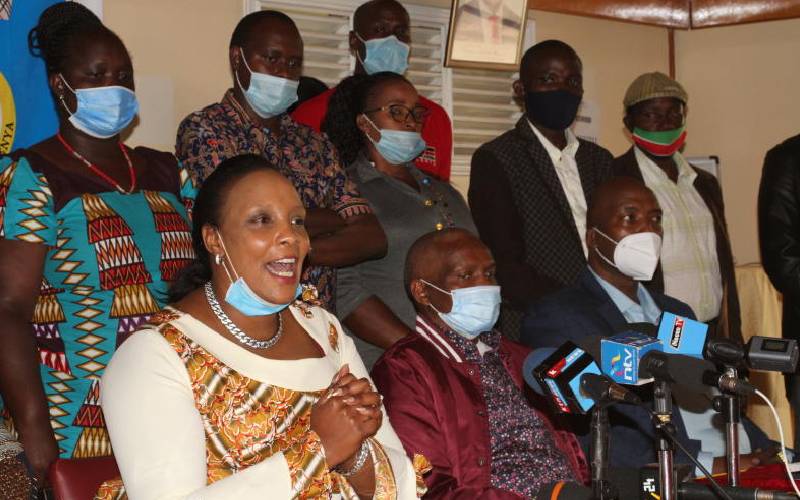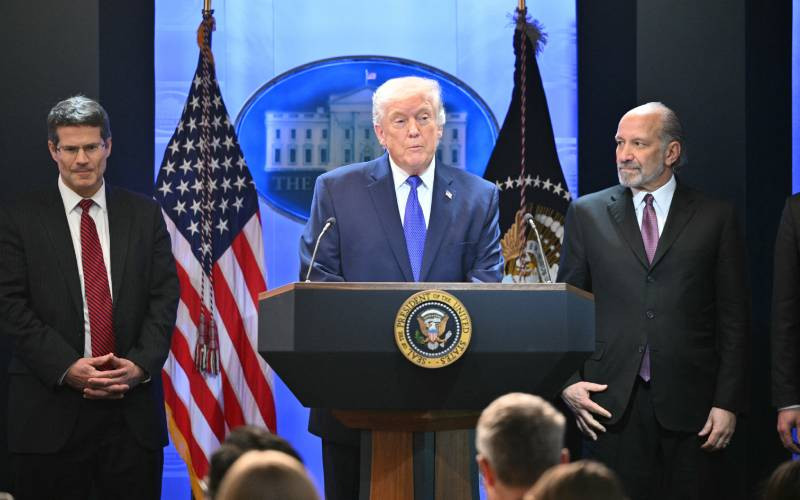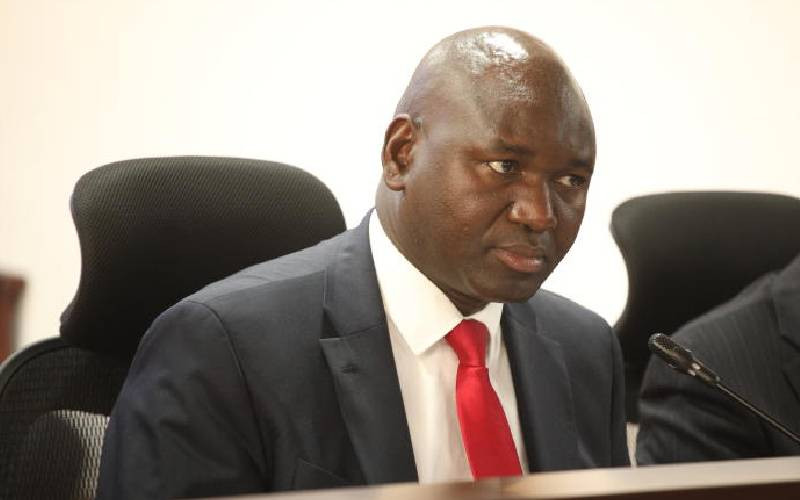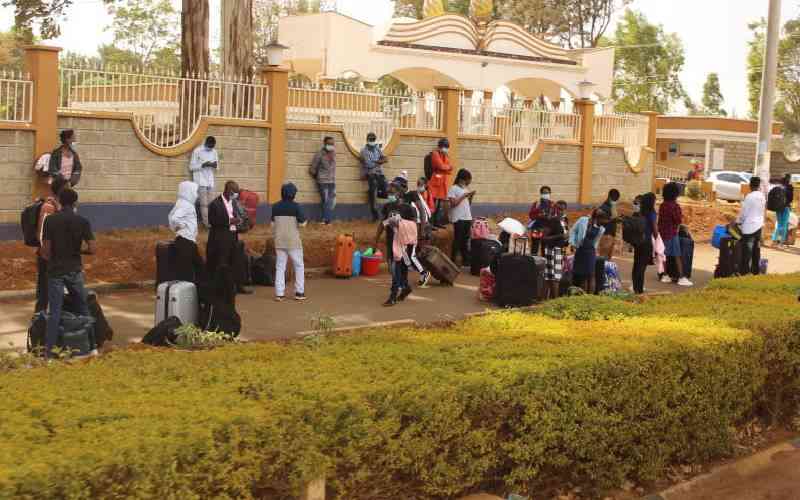The Chairperson of Mitumba Association of Kenya Teresia Wairimu (left) flanked by a section of other members address the press at a Nairobi hotel on August 29,2020. [Collins Kweyu,Standard]
×
The Standard e-Paper
Home To Bold Columnists






